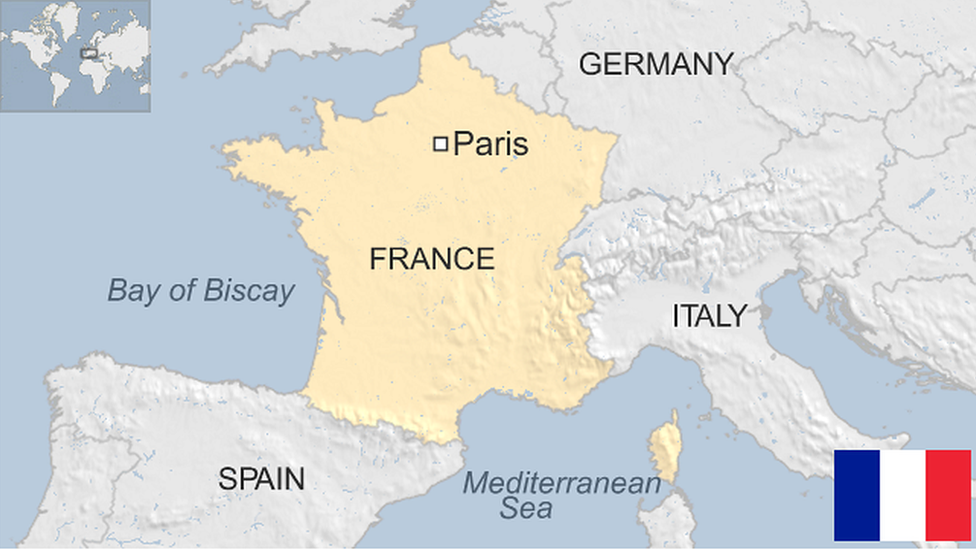France labour dispute: Paris protests descend into violence
- Published
Protesters are angry about proposed changes to labour laws
Protests in Paris over a French labour reform bill have turned violent, with at least 40 people injured, including 29 police officers, and 58 arrests.
At least 75,000 demonstrators had convened in the capital as the upper house of parliament debated changes to employment laws.
One of the city's best-known attractions, the Eiffel Tower, was closed due to strike action by staff.
The labour reform makes it easier for employers to hire and fire workers.
It would also relax the limit on working hours. The government forced the changes through the National Assembly last month without a vote.
Police said the clashes in Paris involved "several hundred masked people", who threw chunks of paving, set bins ablaze and smashed some shop windows. Police responded with tear gas and water cannon.
In the evening two "Autolib" electric cars were set ablaze, as were four other vehicles elsewhere in Paris, police said.
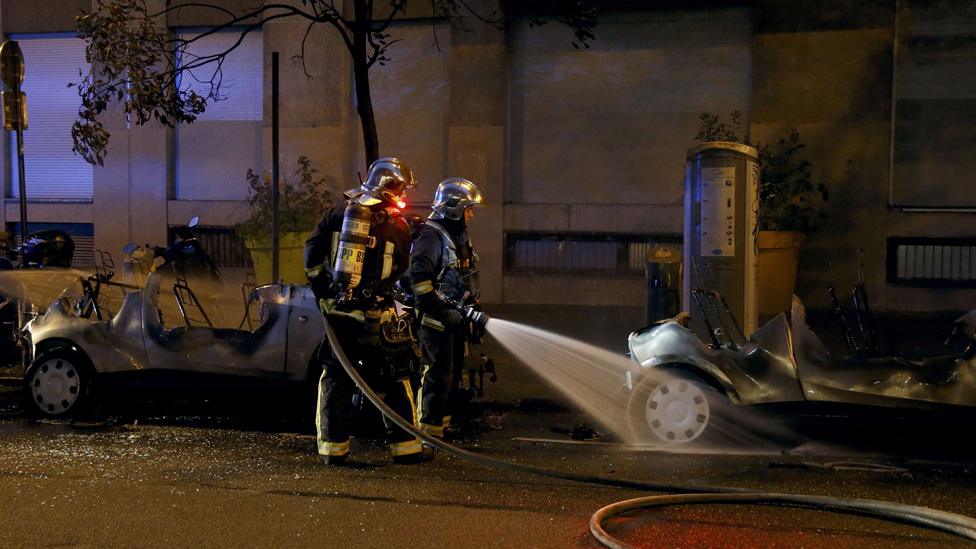
Violence continued in the evening: Two electric cars were set ablaze
Students and several unions organised protests across the country, part of weeks of industrial action.
The CGT union said 1.3 million people demonstrated, but the police estimate was much lower - about 125,000.
Rail workers and taxi drivers are also on strike, disrupting transport.
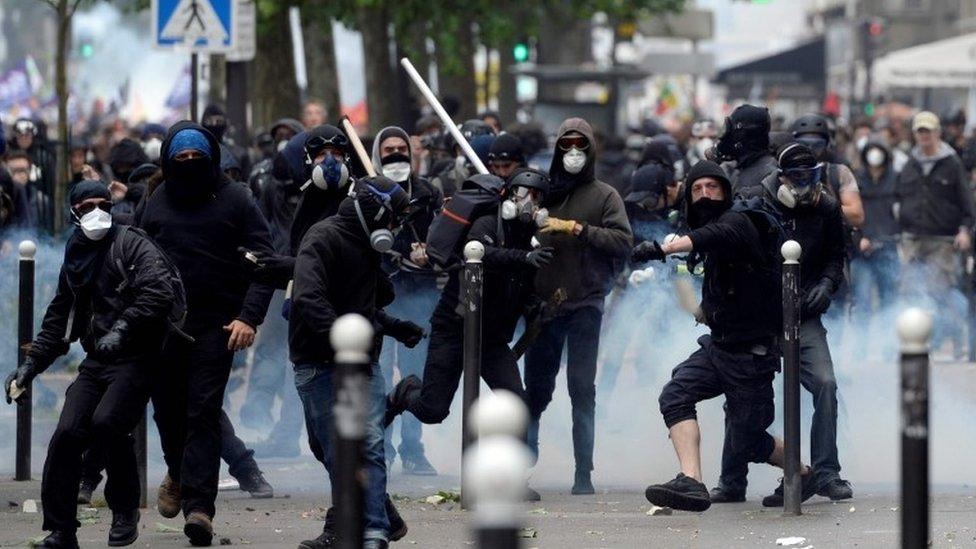
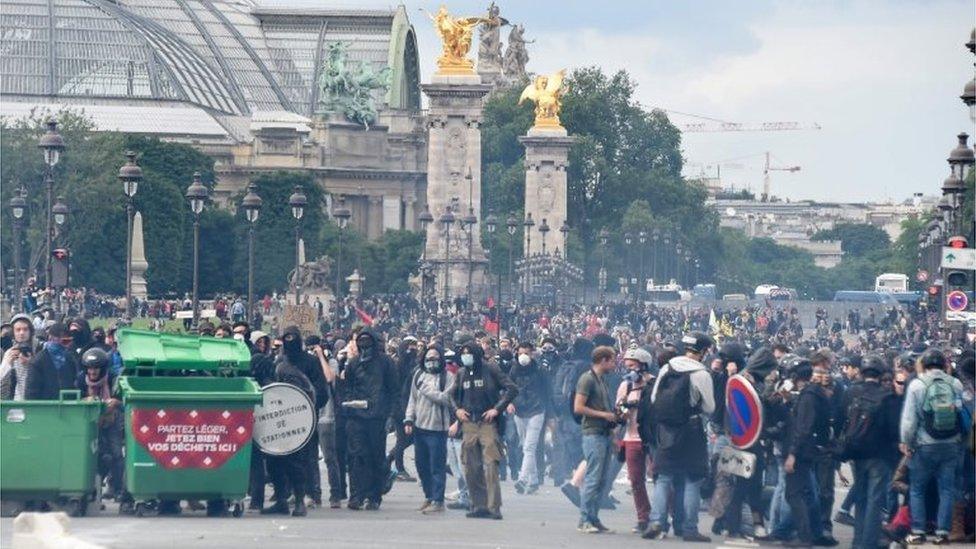
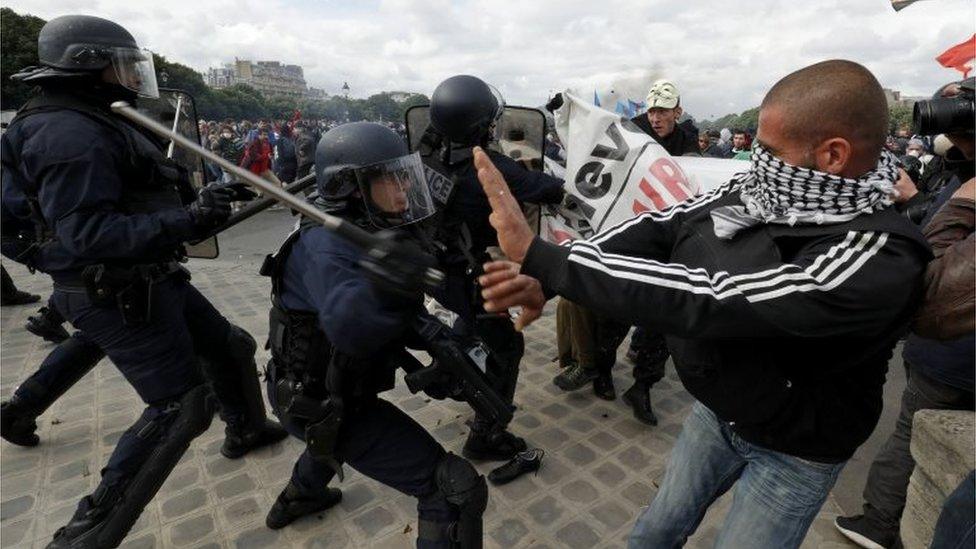
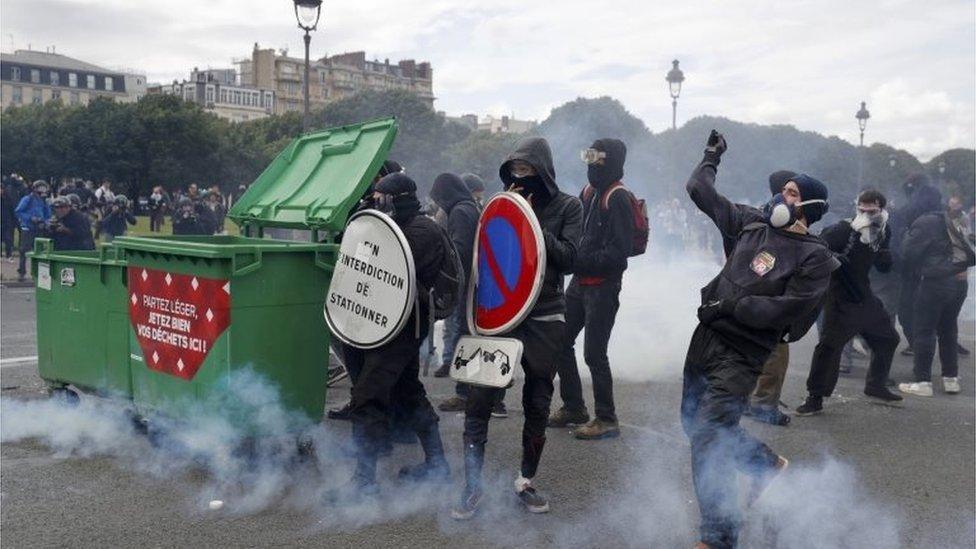
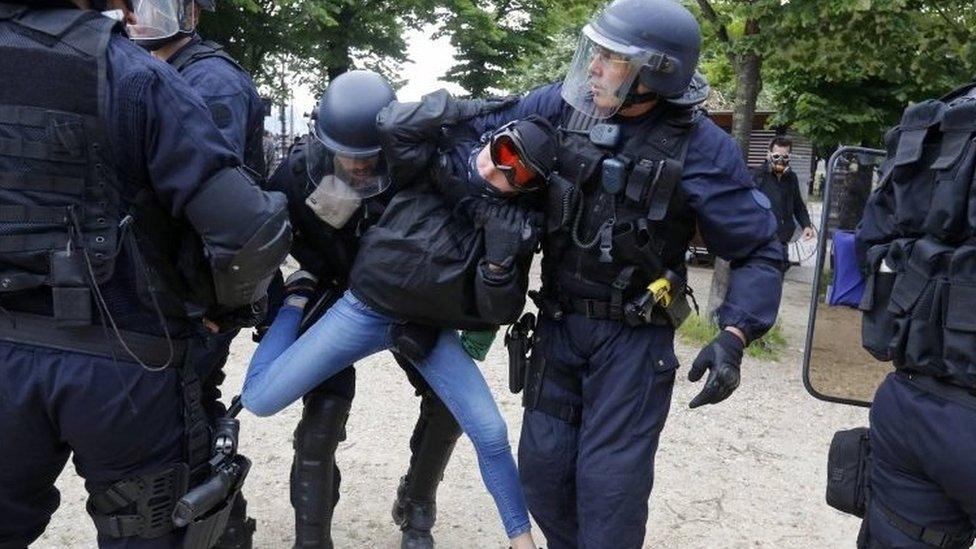
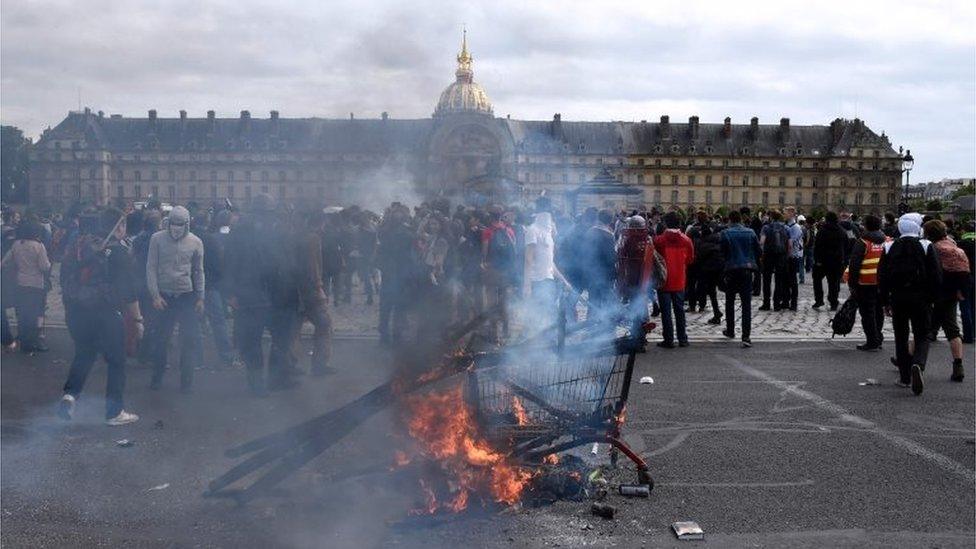
The crowd marched from south-east Paris to the Invalides, a monument complex and magnet for tourists.
The unrest coincided with the Euro 2016 football championship - a major challenge for French police, marred already by violence among fans.
In a separate protest, Air France pilots went on strike to demand better working conditions.
An estimated 20% of all Air France flights were cancelled as a result, the company said.

French labour reform bill - key points:
The 35-hour week remains in place, but as an average. Firms can negotiate with local trade unions on more or fewer hours from week to week, up to a maximum of 46 hours
Firms are given greater freedom to reduce pay
The law eases conditions for laying off workers, which is strongly regulated in France. It is hoped companies will take on more people if they know they can shed jobs in case of a downturn
Employers to get more leeway to negotiate holidays and special leave, such as maternity or for getting married. These are currently also heavily regulated

French Interior Minister Bernard Cazeneuve said he could "no longer bear the attacks against the police".
He called on protesters "to find within themselves a little humanity, tolerance and respect".
Demonstrations against the reform bill began on 9 March and led to a massive demonstration on 31 March, when nearly 400,000 people came out in protest across France.
- Published26 May 2016
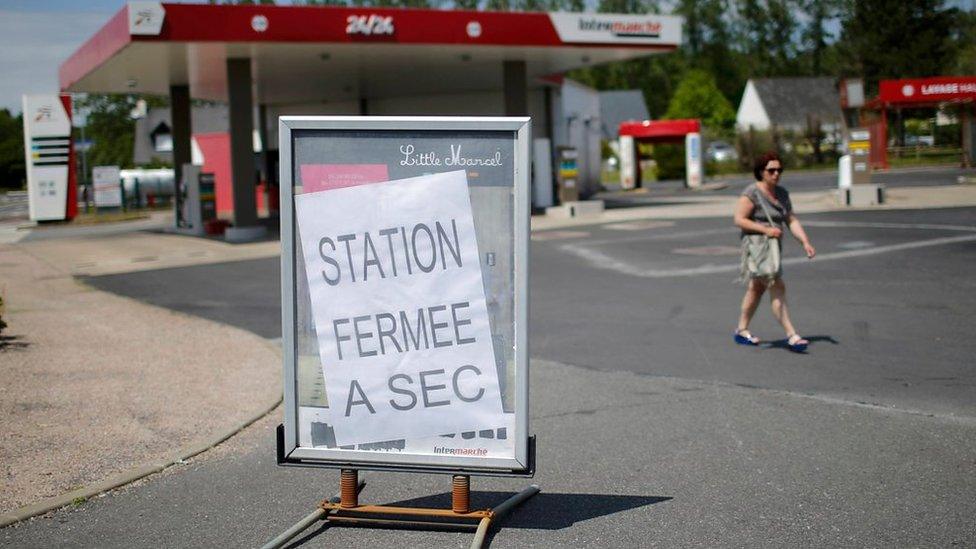
- Published26 May 2016
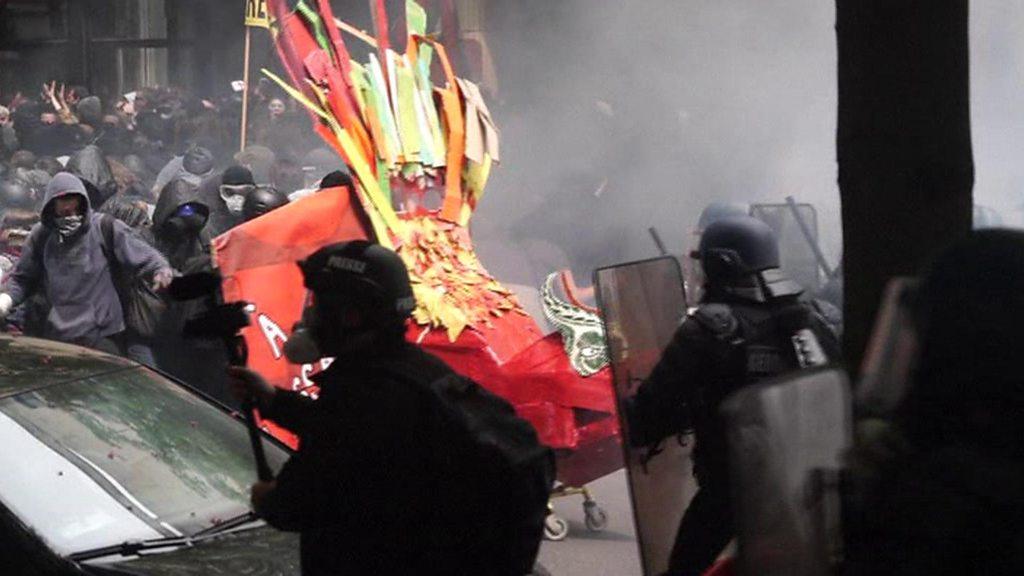
- Published9 January 2024
